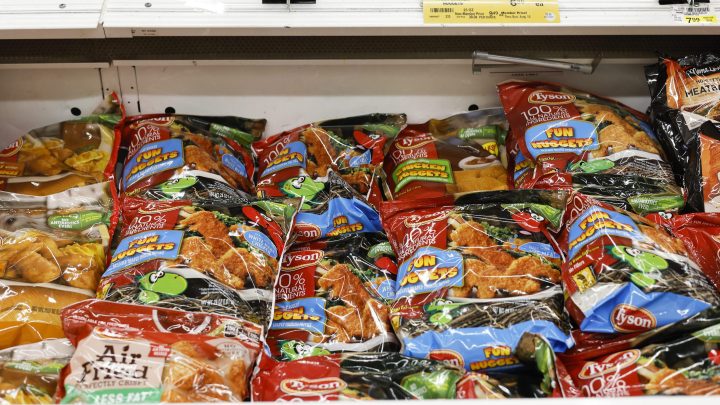
Why chicken over beef? Food fads come and go with price, habits and … TikTok
Why chicken over beef? Food fads come and go with price, habits and … TikTok

There’s a question at the end of every day that many of us have to answer that is somehow both practical and existential: What are we having for dinner?
The answer usually includes some form of protein, which is referred to in the food industry as “the center of the plate.” Exactly what kind of protein is at the center of that plate changes with dietary trends.
Recent reporting by the Wall Street Journal found that Tyson Foods, one of the nation’s leading poultry producers, is closing down some processing plants, in part because the company seemingly overestimated Americans’ zeal for chicken.
Turns out, protein fads are influenced by everything from price to habit to TikTok.
A hot protein of the moment? “People put cream cheese in everything now,” said Jennifer Bartashus, a senior equity analyst with Bloomberg Intelligence.
The cream cheese trend emerged through social media, she said. A quick scan turns up recipes for cream cheese pasta sauces, spinach turnovers and beef stroganoff.
Restaurants start trends too, Bartashus noted.
“Just after the height of the pandemic, we sort of saw a chicken sandwich war,” she said. “And we saw chicken sandwiches at every fast food restaurant imaginable.”
Chicken was also relatively inexpensive, which is why it was attractive to restaurants.
Prices matter in the grocery store too, said Joseph Balagtas, a professor and director of the Center for Food Demand Analysis and Sustainability at Purdue University — especially if people are choosing between different kinds of meat.
“The relative price of pork and chicken and beef might affect what people grilled this past weekend,” he said.
But on the spot, they’re not likely to swap out their meat for, say, legumes.
“The price of those products relative to lentils probably didn’t have much influence,” Balagtas added.
A lot of food trends are driven by habit, he went on, and people need to be comfortable with how they’re preparing their protein of choice.
“Or I need to be in the habit of exploring, right, and doing new things, and being sort of inventive,” he said. “And not everybody is great at that, right?”
That’s where TikTok trends can inspire people to try out new ingredients. But it’s not like the food industry can immediately respond to every new protein craze, because, as Truist restaurants analyst Jake Bartlett points out, some foods take a while to produce.
Like beef. “From farm to fork, it’s about two and a half years for a cow,” he said, “so it takes some time to rebuild that herd.”
In case you’re wondering, pork takes less time to produce. And Bloomberg’s Jennifer Bartashus said she thinks the next big thing will be bacon.
There’s a lot happening in the world. Through it all, Marketplace is here for you.
You rely on Marketplace to break down the world’s events and tell you how it affects you in a fact-based, approachable way. We rely on your financial support to keep making that possible.
Your donation today powers the independent journalism that you rely on. For just $5/month, you can help sustain Marketplace so we can keep reporting on the things that matter to you.

















